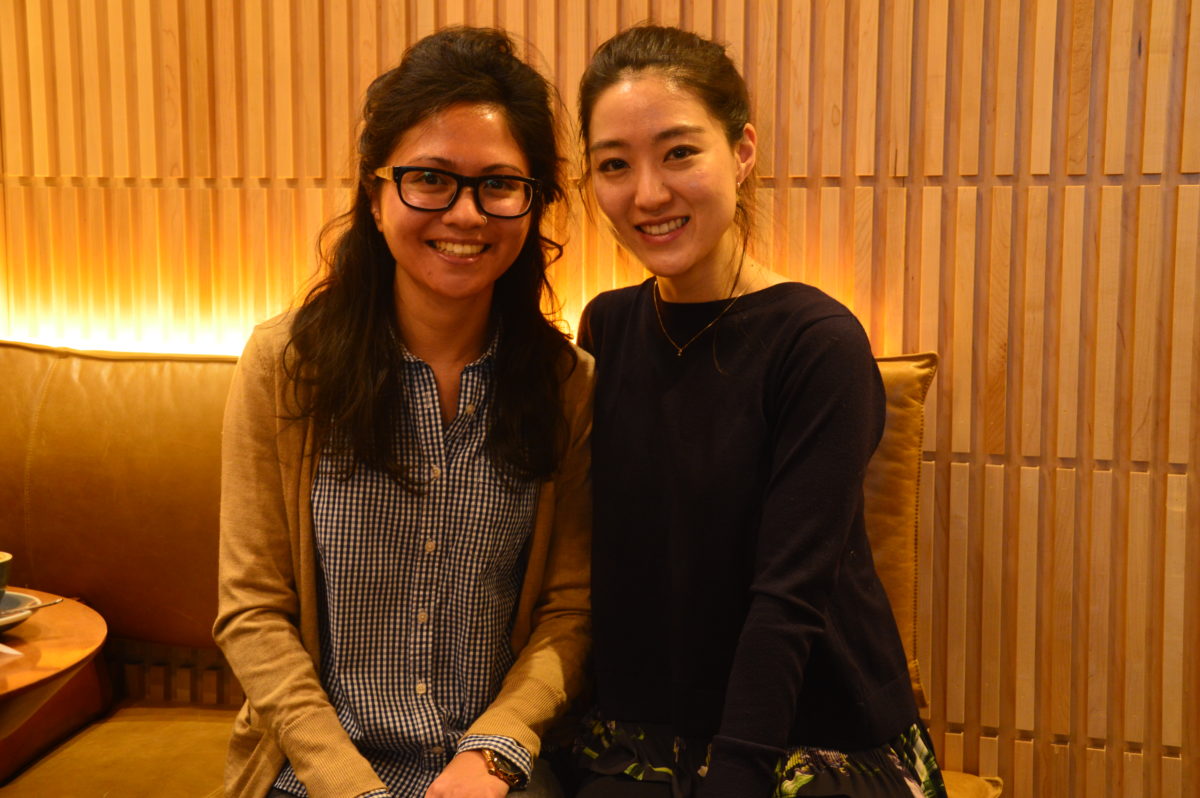As part of a college English course, George Brown students are creating podcasts to encourage critical and respectful dialogue
George Brown students picked up an interesting assignment at the start of their College English courses this semester; make a podcast to help foster healthy and engaged discussions.
Professors Anne Song and Sarika Narinesingh got the ball rolling first, starting and producing Discourse, a podcast that aims to explore multiple perspectives to encourage deep thought and honest connection.
With the podcast, Song and Narinesingh wanted to demonstrate to their college English students what it means to engage with an academic reading actively, thoroughly and in such a way that’s fun.
“College English is about leaving your biases behind and critically evaluating and judging others’ opinions,” said Narinesingh. “We want the students to have a personal connection, but not to the point that they forget to agree to disagree.”
This approach to engaged and respectful analysis, was inspired in part by Barack Obama’s farewell speech, in which he highlighted the dangers of “corrosive” dialogue.
“Obama’s speech encouraged us to wrestle with and through discussion, to come to some sort of consensus,” said Narinesingh. “That’s a democratic process, it’s active citizenship.”
Another inspiration, according to Narinesingh, came from past friction in the classroom.
“We found that many students got very defensive and couldn’t separate their own biases and anxiety from the text,” she said. “And so we wanted students to actively suspend their judgement and make a clear and valid judgement of another person’s thoughts in an essay.”
The first episodes of Discourse were put together as a prototype for the students to adhere to when they make their own podcasts as a part of the course.
In the beginning, the topics were chosen from the syllabus, but recently they have expanded to cover other texts of interest.
In addition to creating engaged and respectful discussion among students, another goal of having students make their own podcast is employability.
“The podcast can be incorporated into portfolios and used as a demonstration of one’s ability to listen to diverse opinions, engage with them in a meaningful way, respond with compassion and insert oneself confidently,” explained Song.
According to Narinesingh, the task of creating a podcast initially created anxiety for the students. Now, Song and Narinesingh are confident that their students have welcomed this teaching approach.
To make it easier for the students the project was given out in the first week, along with the details of an app called Opinion, which the instructors use to create podcasts.
Song and Narinesingh said that they have received some excellent podcasts so far, which they intend to publish if the students give their permission.
The professors also have big dreams for the Discourse podcast.
“Right now we do the production, but in the long run we would love to see students take over Discourse,” said Song. “It could be used as a hook to connect the growing George Brown community or developed into a club.”
Song and Narinesingh will be presenting on using podcasts as teaching tools at the upcoming College Association for Language and Literacy conference at George Brown this June. The conference’s theme this year is divergent thinking in communication classrooms.


